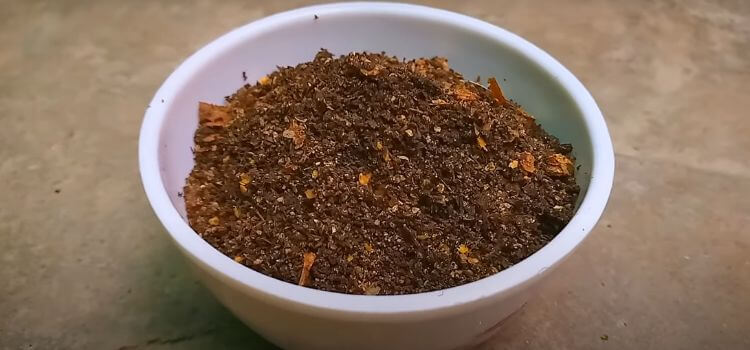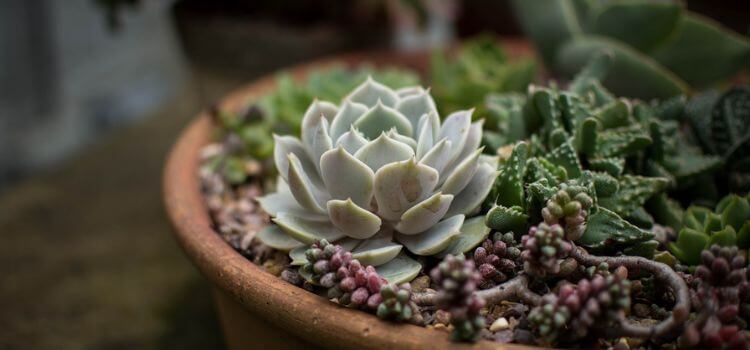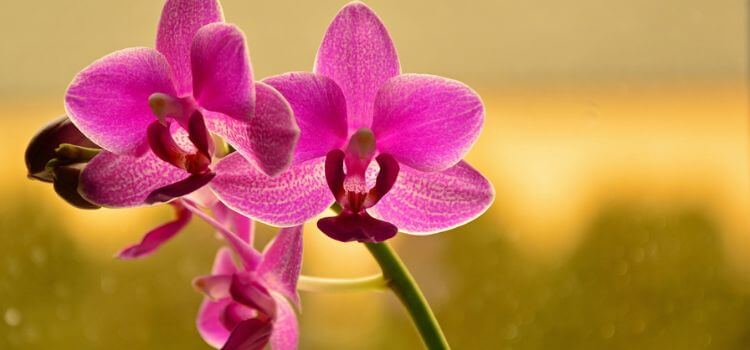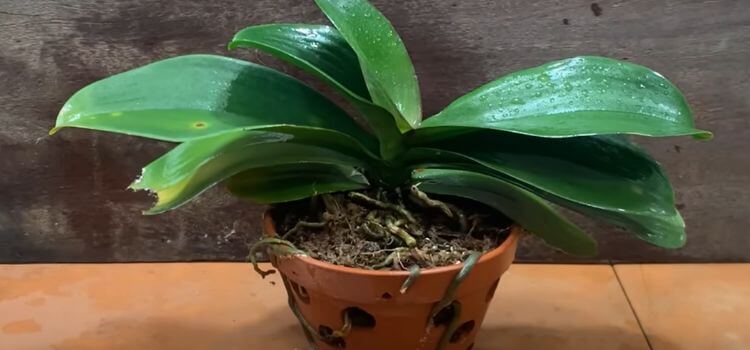As an Amazon Associate, I earn from qualifying purchases.
Orchid fertilizer can be used on succulents, but it’s not ideal. Succulents need specific nutrients for optimal growth.
Succulents and orchids have different nutritional needs. While orchid fertilizer can provide some benefits, it’s not specifically formulated for succulents. Succulents thrive on a balanced mix of nutrients, particularly nitrogen, phosphorus, and potassium, in the proper proportions. Orchid fertilizers often have different nutrient ratios, which might not support succulent growth effectively.
For best results, use a fertilizer designed for succulents. This ensures they receive the appropriate nutrients to flourish. Proper fertilization helps succulents maintain their vibrant colours, robust growth, and overall health. Always read the fertilizer label to ensure it meets the specific needs of your plants.
What is Orchid Fertilizer?
Fertilizing plants ensures they get the nutrients needed to thrive. But can you use orchid fertilizer on succulents? To answer this, understanding orchid fertilizer is crucial. Both orchids and succulents have unique nutritional needs. Let’s explore the components and application of orchid fertilizer.

Components Of Orchid Fertilizer
Orchid fertilizers are specially formulated for the delicate needs of orchids. They usually contain a balanced mix of essential nutrients. Here are the primary components:
- Nitrogen (N): Promotes leaf and stem growth.
- Phosphorus (P): Enhances root development and flower blooming.
- Potassium (K): Strengthens plant resistance against diseases.
These fertilizers often have a balanced N-P-K ratio, which stands for Nitrogen, Phosphorus, and Potassium. A standard ratio is 20-20-20. Additionally, orchid fertilizers might include trace elements such as:
- Calcium (Ca): Essential for cell wall structure.
- Magnesium (Mg): Important for chlorophyll production.
- Iron (Fe): Crucial for enzyme functions.
Orchid fertilizers can be either granular or liquid. Liquid fertilizers are often preferred for their ease of use. Given their delicate nature, orchids require a mild, balanced nutrient supply. This mildness can make orchid fertilizer suitable for other plants, including succulents, but with caution.
Application And Frequency
Applying orchid fertilizer correctly ensures plants get the proper nutrients without overfeeding. For succulents, follow these guidelines:
- Dilution: Always dilute the fertilizer. Use half the recommended strength for orchids.
- Frequency: Fertilize succulents during their growing season, typically spring and summer.
- Method: Apply the diluted fertilizer to the soil, avoiding direct contact with leaves.
Succulents need less frequent fertilization compared to orchids. Over-fertilizing can harm them. A general rule of thumb is to fertilize succulents once a month during active growth. Avoid fertilizing during dormancy in winter.
Here’s a simple schedule for succulent fertilization using orchid fertilizer:
| Month | Fertilization Frequency |
|---|---|
| March-August | Once a month |
| September – February | No fertilization |
Remember, each succulent species may have specific needs. Always observe your plants and adjust accordingly. If done correctly, using orchid fertilizer on succulents can be beneficial. Balance and moderation are essential.
Succulent Nutritional Requirements
Succulents are famous for their ability to thrive in harsh conditions, but they still need the proper nutrients to stay healthy. Proper nutrients help succulents grow strong, vibrant, and resilient.
Key Nutrients For Succulents
Like all plants, succulents require specific nutrients to flourish. The primary nutrients they need are nitrogen (N), phosphorus (P), and potassium (K), which are often referred to as N-P-K.
- Nitrogen (N): This nutrient promotes leafy growth and plant vigor. However, too much nitrogen can cause succulents to become leggy and weak.
- Phosphorus (P): Phosphorus supports root development and flower production and is crucial for energy transfer within the plant.
- Potassium (K): Potassium helps plant health, enhancing disease resistance and water retention capabilities.
In addition to the primary nutrients, succulents also benefit from secondary nutrients and trace elements:
- Calcium (Ca): Essential for cell wall structure and stability.
- Magnesium (Mg): Important for photosynthesis as it is a central component of the chlorophyll molecule.
- Iron (Fe): Crucial for synthesizing chlorophyll and overall plant metabolism.
Here’s a quick reference table for the essential nutrients and their roles:
| Nutrient | Role |
|---|---|
| Nitrogen (N) | Leafy growth, plant vigour |
| Phosphorus (P) | Root development, flower production |
| Potassium (K) | Overall plant health, disease resistance |
| Calcium (Ca) | Cell wall structure |
| Magnesium (Mg) | Photosynthesis |
| Iron (Fe) | Chlorophyll synthesis |
Balancing Nutrient Levels
While succulents need various nutrients, the balance is crucial. Over-fertilizing can harm them, leading to weak growth or nutrient burn.
To maintain the proper nutrient levels, follow these guidelines:
- Use diluted fertilizer: Succulents need less concentrated nutrients. Dilute the fertilizer to half or quarter strength.
- Fertilize sparingly: Apply fertilizer during the growing season, typically spring and summer. Once a month is usually sufficient.
- Check the N-P-K ratio: Choose a balanced fertilizer with an N-P-K ratio around 2-7-7, which matches succulent needs better.
Over time, adjust your fertilizing routine based on your succulent’s response. Observe for signs of nutrient deficiency or excess:
- Yellowing leaves may indicate a nitrogen deficiency.
- Stunted growth can result from a phosphorus shortage.
- Weak stems might signal a lack of potassium.
Regular monitoring and adjustments ensure your succulents receive the right nutrients without overloading them. Proper balance keeps your plants healthy and thriving.
Compatibility Of Orchid Fertilizer With Succulents
Succulent enthusiasts often ask, “Can you use orchid fertilizer on succulents?” While both plants have unique needs, understanding the compatibility of orchid fertilizer with succulents can help you make an informed decision. This blog post delves into the nutrient ratios, potential risks, and benefits to give you a clearer picture.
Assessing Nutrient Ratios
Orchid fertilizers generally have specific nutrient ratios designed for orchids. These ratios are crucial for the health and growth of orchids. Here are the essential nutrients:
- Nitrogen (N): Promotes leaf growth.
- Phosphorus (P): Encourages root development and flowering.
- Potassium (K): Aids in overall plant health.
Orchid fertilizers often have a balanced ratio like 20-20-20 or a bloom-boosting ratio like 30-10-10. Succulents, on the other hand, thrive on low nitrogen levels. High nitrogen can cause excessive leaf growth, making the plant leggy and unhealthy.
Here’s a quick comparison table:
| Nutrient | Orchid Fertilizer Ratio | Ideal Succulent Ratio |
|---|---|---|
| Nitrogen (N) | 20-30% | 5-10% |
| Phosphorus (P) | 10-20% | 5-10% |
| Potassium (K) | 10-20% | 5-10% |
These differences in nutrient ratios highlight why succulent fertilizer might be a better choice than orchid fertilizer. An imbalance can affect the plant’s health and growth patterns.

Potential Risks And Benefits
Using orchid fertilizer on succulents has both risks and benefits. Knowing these can help you decide if it’s worth trying.
Potential Risks:
- Over-fertilization: High nitrogen levels can lead to leggy growth and weak stems.
- Root Burn: Excessive nutrients can damage the roots, making the plant susceptible to diseases.
- Imbalanced Growth: The wrong nutrient ratio can cause imbalanced growth, affecting the plant’s overall appearance.
Potential Benefits:
- Boosted Flowering: The high phosphorus content in orchid fertilizer can promote blooming in some succulents.
- Quick Nutrient Supply: Orchid fertilizers are usually fast-acting, providing a quick nutrient boost.
- Versatility: Using one fertilizer can be convenient if you have orchids and succulents.
Weighing these risks and benefits can help you decide whether orchid fertilizer is suitable for your succulents. To minimize potential risks, always start with a diluted solution.
Have you ever wondered if you can use Orchid Fertilizer on your beloved Succulents? Succulents are famous for their unique appearance and low maintenance needs. But can you use orchid fertilizer on succulents? Orchid fertilizers contain specific nutrients designed for orchids. Let’s explore if these nutrients benefit your succulents.
Customizing Fertilizer Mixtures
When it comes to orchid fertilizers, they often come with a balanced nutrient profile that includes nitrogen, phosphorus, and potassium. These nutrients can be beneficial for your succulents too, but you might need to tweak the mixture a bit. Here are some handy tips to help you do just that:
- Check the N-P-K Ratio: Look for an N-P-K ratio of 10-10-10 or similar. This ratio ensures a balanced mix of nutrients.
- Dilute the Fertilizer: Orchid fertilizers can be intense. Dilute them to half or quarter strength. This prevents over-fertilizing your succulents.
- Add Organic Matter: Mix in some compost or worm castings. This improves soil health and nutrient availability.
Here’s a simple table to help you customize your orchid fertilizer for succulents:
| Action | Description |
|---|---|
| Check N-P-K Ratio | Ensure it’s balanced, like 10-10-10 |
| Dilute Fertilizer | Use half or quarter-strength |
| Add Organic Matter | Mix in compost or worm castings |
Adjusting Application Techniques
Applying orchid fertilizer to succulents requires some technique adjustments. Succulents have different watering needs than orchids. Here’s how to apply the fertilizer effectively:
- Water First: Always water your succulents before applying fertilizer. This prevents root burn.
- Apply Sparingly: Use the diluted fertilizer once a month. Too much fertilizer can harm your succulents.
- Use a Spray Bottle: Mix the diluted fertilizer in a spray bottle. Spray it evenly on the soil surface.
- Avoid Leaves: Do not spray the leaves. Fertilizer on leaves can cause burns or spots.
Remember these key points when applying orchid fertilizer to succulents:
- Water first to protect roots.
- Use diluted fertilizer sparingly.
- Spray the soil, not the leaves.
Adjusting these techniques ensures your succulents receive the proper nutrients without any harm.

Frequently Asked Questions
Yes, you can use orchid fertilizer for succulents. Ensure you dilute it to half-strength. Succulents need less frequent feeding.
Yes, orchid fertilizer can be used for other plants. Ensure the nutrient balance meets each plant’s specific needs.
The best succulent fertilizer is a balanced, water-soluble fertilizer with a low nitrogen content. Use a 2-7-7 or 10-10-10 formula. Apply it diluted to half strength during the growing season. Avoid over-fertilizing to prevent root burn.
Yes, you can use indoor plant food on succulents. Choose a balanced, diluted fertilizer for the best results.
Conclusion
Using orchid fertilizer on succulents can be effective if done carefully. Always dilute the fertilizer and apply sparingly. Monitor your plants for any signs of stress. Experiment with caution and observe the results. Your succulents can thrive with the proper care and nutrients.
Happy gardening!

